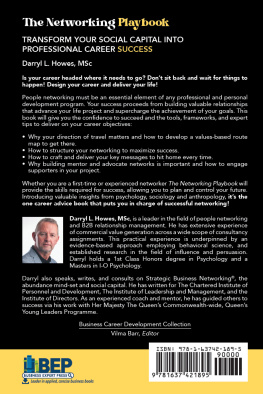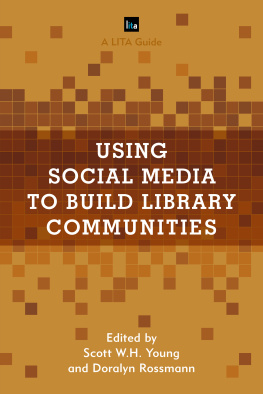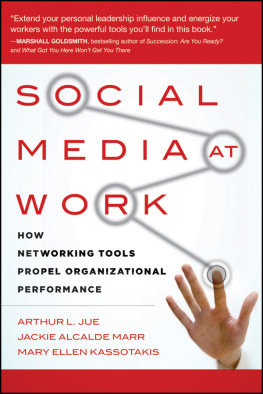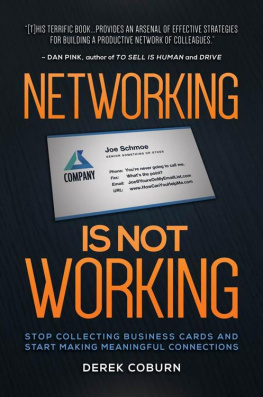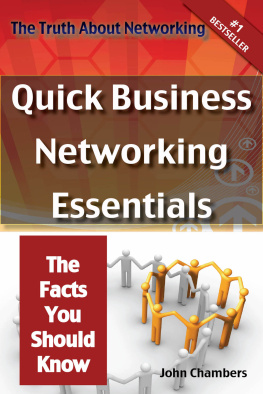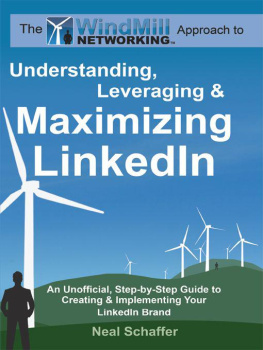Foreword Copyright 2017 by Ferrazzi Greenlight, Inc.
Hachette Book Group supports the right to free expression and the value of copyright. The purpose of copyright is to encourage writers and artists to produce the creative works that enrich our culture.
The scanning, uploading, and distribution of this book without permission is a theft of the authors intellectual property. If you would like permission to use material from the book (other than for review purposes), please contact permissions@hbgusa.com. Thank you for your support of the authors rights.
Published by Da Capo Press, an imprint of Perseus Books, LLC, a subsidiary of Hachette Book Group, Inc. The Da Capo Press name and logo is a trademark of the Hachette Book Group.
The Hachette Speakers Bureau provides a wide range of authors for speaking events. To find out more, go to www.hachettespeakersbureau.com or call (866) 376-6591.
The publisher is not responsible for websites (or their content) that are not owned by the publisher.
When I first published Never Eat Alone in 2005, having a PalmPilot and a BlackBerry was state of the art, social media was a choice between Facebook or MySpace, and networking was how you got ahead. Its not what you know; its who you know was a popular corporate mantra, leading countless thirsty junior executives to brush up on their conversational skills or attend a seminar to learn the tricks to successful networking. I was lucky, though: I had the best networking coach aroundmy father, Pete. Like most immigrant parents, he raised me to show up early, learn everything I could, work hard, and be of service. Through him, I learned that it mattered not how many people you knew but how many people you helped, because those were the people who would be there for you when you needed help.
I wrote Never Eat Alone because I saw that the way people networked was all wrong. The standard approach was transactional and self-interested, with the guiding principle being What can this person do for me? There was no sincerity, no authenticity, just a desire to grab as many business cards as possible, in the hopes that one day one of them would produce a return. Coming from an Italian family, this made no sense to me. Community is a driving force in Italian culture, and you cant create a community if everyone is just looking out for themselves. You need to look out for each other, develop opportunities for others, and find ways to make sure you all succeed: as the saying goes, a rising tide lifts all boats.
Of course, knowing what to do and knowing how to do it are rarely the same thing. Telling people Be generous, be sincere, be authentic can sound more like Put yourself out there, and open yourself up to ridicule and humiliation, and no one wants that. It was always easier to have a game face, but game face is just a euphemism for mask. I wanted to introduce the idea of leading with generosity, of showing how what you bring to the table can benefit others, and how creating a network means reaching out and being generous not just with your immediate circle of friends, but with acquaintances who may not share your interests but have complementary skills and expertise. By taking care of the people within your sphere of influence, they, in turn, will take care of you.
The development of social networks over the past decade has made forming those initial connections easier. A click of a button and youre officially someones follower; two clicks and youre friends. Its the twenty-first-century version of collecting business cards. But even with all this immediate connectivity to almost anyone, the mechanics of forming those relationships hasnt changed: we still want to know each other as individuals, not just as job titles; we still want to work with people we like and who have our best interests in mind; and mostly, we want to connect and partner with people with an interest in not only their own success but the success of others as well.
Being a Superconnector isnt a talent or a giftits having the awareness to realize that we all want the same things, even if we take different paths. Its reaching out to someone else and saying, I can help you get there. Its having the generosity of spirit that would never reduce success to a zero-sum game. Seeing people like Scott and Ryan take my words to heart and expand on them by developing their own approaches to connecting instead of networking has been gratifying. While technology is constantly changing and improving to help us become more connected with others, it cant improve upon one persons offer of support and generosity to another. Books like this remind us that it will always be the human connection to helping each other that matters most.
This is a book about building relationships. Relationships that exist for mutual benefit. Relationships through which something wonderful can happen. It is a book about community, and community building, and the very real need for connection. It is a book for anyone looking to enhance his or her relationship-making ability, both professionally and personally.
Relationship building is something that we take very seriously. Our entire professional lives have been based on helping business owners, entrepreneurs, and professionals meaningfully connect and build value with one another. We pride ourselves on our expertise in this area, and over the years we have developed a strong methodology for how to go about building, fostering, nurturing, developing, and maintaining relationships.
We want to help you understand the power of connection, too. As the world gets noisier and busier, connecting has never been more important. The next generation of success via social capital will be determined by those who have walled-off access to the people who matter.
We want to help you become the sort of person who has that kind of access. To be a connector.
A Superconnector.
Superconnectors are a new category of tradespeople born out of the social media era. They are highly valuable community builders who make things happen through their keen understanding and utilization of social capitalthat is, the people you meet and the standing you have with them. We believe that social capital is the most important currency in the world. People, not money, are your most important assets; great things in business happen when the right people come together.
Superconnectors are people who just seem to know everyone, says Keith Ferrazzi, the founder of Ferrazzi Greenlight, a research and consulting firm, who actually coined the term Superconnector in his landmark book, Never Eat Alone. Ferrazzi says these people appreciate the importance of weak ties as well as strong relationships. To expand your range of interests and expertise, Ferrazzi explains, you need to diversify your network and incorporate people with whom you have less in common but whose interests are complementary. And Superconnectors connect with a whole spectrum of people.
Superconnectors are information brokers. Their power comes from what they know just as much as whom they know. Obviously, the two are not mutually exclusive; Superconnectors are constantly learning and constantly connecting. They know that the more right people you meet, the more you learn, and vice versa. This is also one of the reasons people are attracted to this type of connector: in a noisy world, thats a one-two punch.


